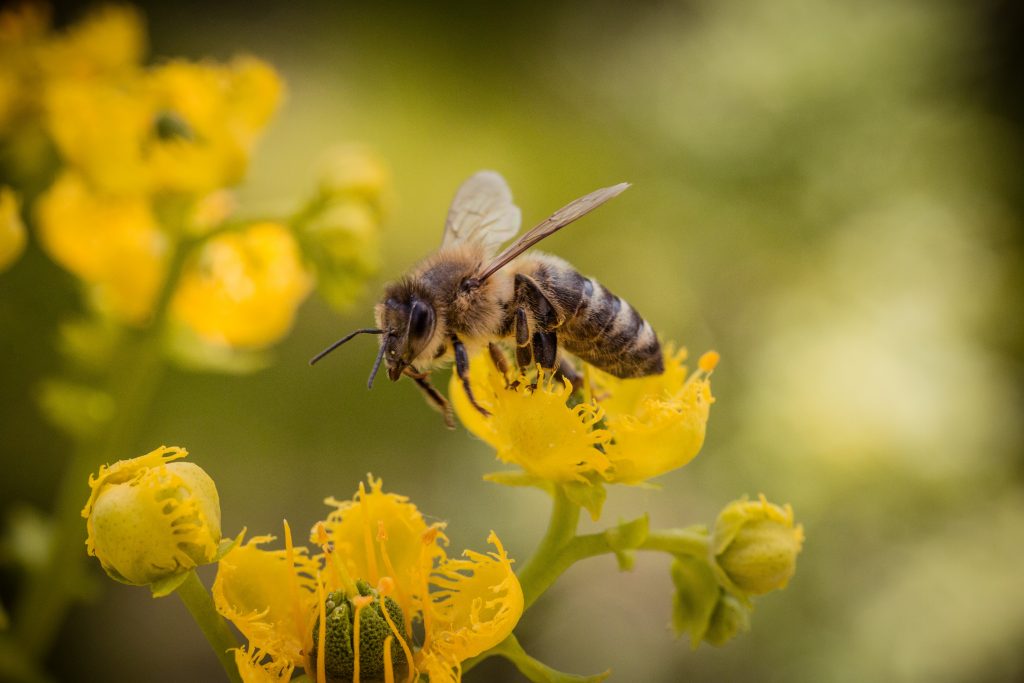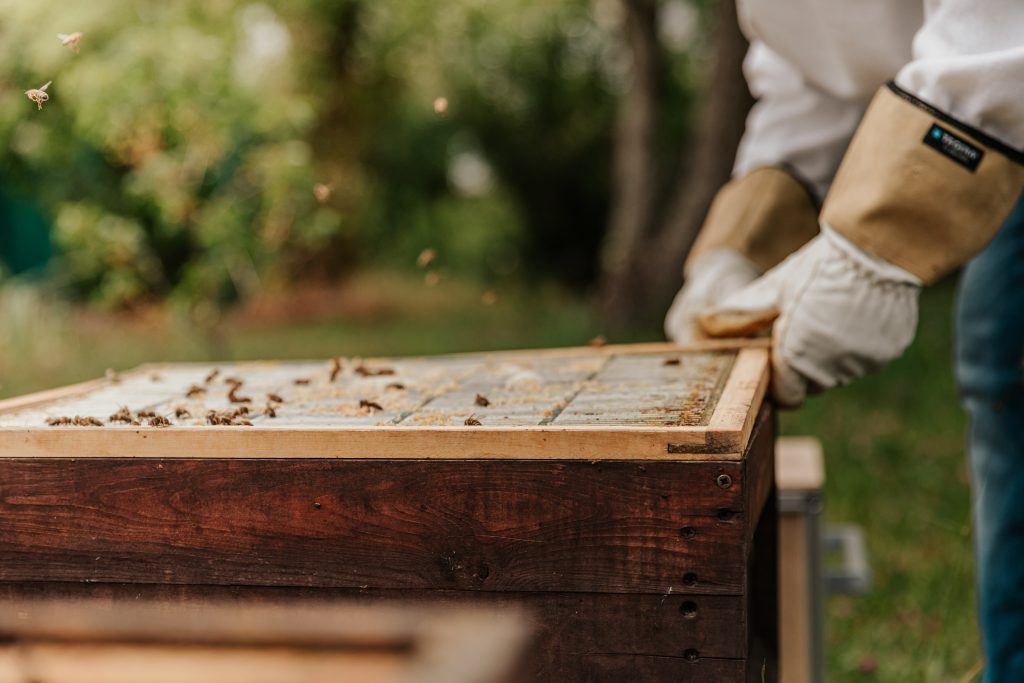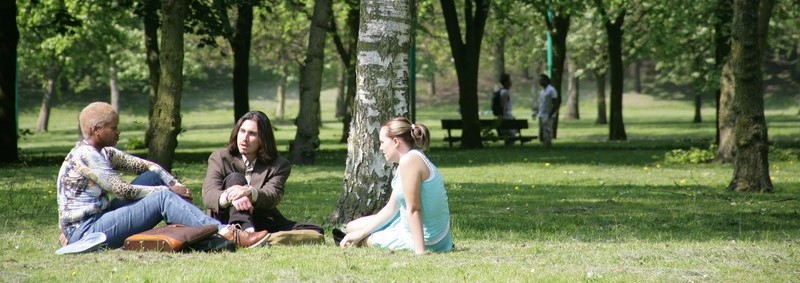Once an undergraduate student in Biology at Salford, Isobel Grindrod is now studying a PhD at the University with a very sweet focus, honeybees.
I put Isobel under the microscope to discover exactly what her research entails and find out more about how the University’s industry partnerships led her to the buzzy creatures.

Your PhD research into honeybees sounds interesting – can you tell me more?
I’m investigating honeybee resistance to Varroa mite infestation. Honeybees are massively important to humans because of the pollination services they provide. The research of my project hopes to understand how resistance to Varroa, which are mites, develops. In the future we may be able to use this understanding to protect honeybees against the harmful chemicals which are currently used to control Varroa mite populations.
It seems like important work! Where did your journey studying honeybees begin?
I completed an undergraduate degree in Biology at the University of Salford. I became interested in insects in the final year of my degree, where I focused my dissertation on ants with the help of my supervisor, Professor Stephen Martin. After I graduated, I took a year out to travel to Japan and Europe, but knew I wanted to return to academia. When I was ready to return, I spoke to Professor Martin and I was offered the opportunity to pursue a funded PhD studying honeybee resistance, which I eagerly accepted.

It’s great that your research is funded – who is funding it and why?
Bee Disease Insurance LTD. It’s run by beekeepers and provides insurance against damage due to notifiable diseases for beekeepers in England and Wales. They are very involved in promoting research into honeybee health and so have funded a number of students, like myself, to study our PhDs. I and previous students are very thankful for their support towards our research.
That’s a great example of an industry partnership available to students at the University. How might another student discover an opportunity like that?
My PhD is called an iCase Partnership, a scheme that co-sponsors three PhDs each year by helping to fund the research. I found out about the possibility of a funded PhD from my supervisor Professor Martin, who had previously worked with Bee Disease Insurance LTD and knew of other students who had pursued an iCase PhD. That was my experience, but other students can also look online using University facilities.
You are currently in the second year of a three-year PhD. What do you hope to do once you graduate?
Once I graduate I hope to either continue in research on honeybee resistance or to use my expertise to work as a consultant for an environmental agency.
How have your studies at Salford helped to prepare you for the work you hope to do in the future?
My PhD studies have provided me with a firm background in conducting scientific research. I have had a lot of practice in engaging with the wider community through giving talks to members of the BBKA (British Beekeepers Association), as well as writing an article for their magazine. This will be helpful if I decide to continue researching honeybees or if I decide to focus on environmental matters, as both will involve engaging with the community.
To learn more about studying a PhD at the University of Salford check out salford.ac.uk.




Love to discuss your research further and also considering a research in bees health, affects of pesticides, disease and parasites to our pollination.